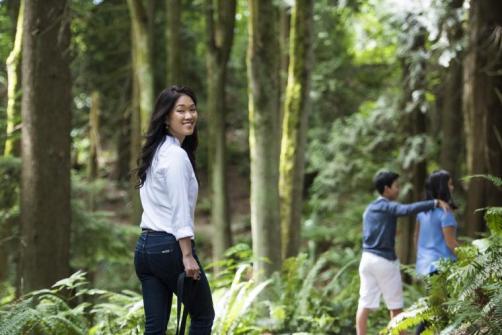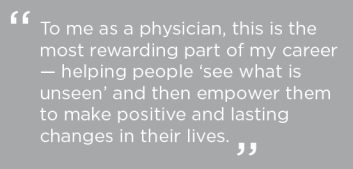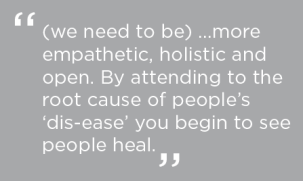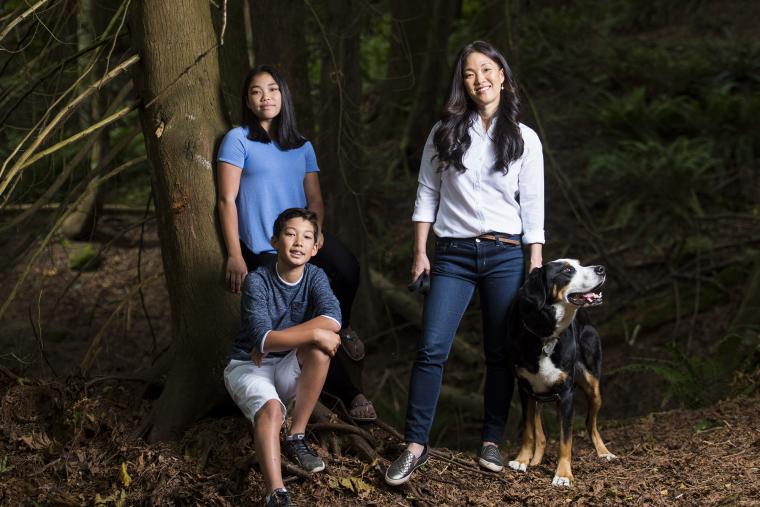- Managing your Practice
-
- Your Benefits
-

Introducing the ultimate Club MD experience
From work to play, and everything in between, we provide you with access to hundreds of deals from recognizable, best-in-class brands, elevating every facet of your life – from practice supports to entertainment, restaurants, electronics, travel, health and wellness, and more. Your Club MD membership ensures that these deals are exclusive to you, eliminating the need to search or negotiate.
Welcome to the ultimate Club MD experience. Your membership, your choices, your journey.
-
- Advocacy & Policy
-
- Collaboration
- News & Events
-

Stay Informed
Stay up to date with important information that impacts the profession and your practice. Doctors of BC provides a range of newsletters that target areas of interest to you.
Subscribe to the President's Letter
Subscribe to Newsletters
-
- About Us
-
A champion for mindfulness, parenting and mind-body connections
July 26, 2018
Doctors Making a Difference
 Dr Linda Uyeda first learned about the impact of stress, and how mindfulness practices could help reduce it and improve health and wellbeing, when two life events collided.
Dr Linda Uyeda first learned about the impact of stress, and how mindfulness practices could help reduce it and improve health and wellbeing, when two life events collided.
She was a busy GP, a few months out of residency, living in Vancouver, when she developed muscle stiffness, clicking, and pain in her jaw.
"I did all the traditional things: massage, physio, acupuncture. I went to the UBC Specialty Dental Clinic for a special splint. I probably spent thousands of dollars over several years trying to solve the discomfort."
The UBC clinic asked if she was under a lot of stress and she said no — everyone she knew was in the same situation: new marriages, young children, mortgages, busy and demanding careers. She had no awareness of how stressful her life was and how she was holding that tension in her jaw at night.
Concurrently, the birth of her first child brought on well-meaning parenting advice from friends and family that starkly conflicted with her intuition.That started her searching for evidence on parenting practices, attachment styles, and neurodevelopment. At multidisciplinary conferences she began hearing about mindfulness practices.
With nothing to lose, she began practicing guided mindfulness exercises each night before sleep, using an app that included body scans, breathing meditations, and present moment awareness coaching.
"Soon the tightness in my jaw and the level of pain lifted. I could not believe that the most effective and lasting results came from mindfulness techniques that were free, had no side effects, and could be done anywhere at any time."
Using her experience to help others
Now Dr Uyeda's passion is helping support, educate and spread the word about the mind-body connection in health and wellness. She also teaches how mindfulness and cognitive behavioural techniques (CBT) can help alleviate stress and build resilience.
 She works two days a week at the BC Forensic Psychiatry Hospital and other days at several Fraser Health Youth Clinics. In both settings she sees, firsthand, how stress, anxiety, attachment issues, and early childhood trauma can set patients up for mental health conditions, addictions and chronic diseases.
She works two days a week at the BC Forensic Psychiatry Hospital and other days at several Fraser Health Youth Clinics. In both settings she sees, firsthand, how stress, anxiety, attachment issues, and early childhood trauma can set patients up for mental health conditions, addictions and chronic diseases.
"A typical scenario might unfold like this: a youth comes in for back pain, but I can see he is vibrating with anxiety. So, after ruling out serious back-related medical problems, I help him deal with the anxiety, which may be contributing not only to his back pain, but work avoidance and social withdrawal."
Dr Uyeda has a website myumwelt.ca and is doing highly-regarded presentations to BC teachers, students, and parents as well as other physicians through various Divisions of Family Practice. She talks about the impact of early childhood experiences on the stress response and how mindfulness techniques may be used to influence an overactive fight or flight reaction. She also speaks about how adverse childhood experiences (ACEs), parenting styles, and childhood attachment issues can play a role in chronic disease, chronic pain and mental health issues.
"I am educating to help people understand that we can do something different. We can break transgenerational patterns of pain and suffering and it is never too late to do it," says Dr Uyeda. "To me as a physician, this is the most rewarding part of my career — helping people ‘see what is unseen’ and then empower them to make positive and lasting changes in their lives."
Dr Uyeda, 45, knew she wanted to be a doctor from age 15 when she had her appendix removed. "The surgeon was really warm and kind and I thought 'wow, I think I could do that." Several years into medical school she even wrote the surgeon; 'You were the one who inspired me and I just wanted to let you know how your kindness influenced my life.'"
The impact of childhood experiences
 One reason why Adverse Childhood Experiences (ACEs) research resonates with her is her own family history. Her maternal and paternal grandparents, all proud Canadian citizens of Japanese ancestry, were forcibly interned by the Canadian government during the Second World War, having all their assets permanently seized — including fishing boats in Steveston and a sawmill in Cumberland.
One reason why Adverse Childhood Experiences (ACEs) research resonates with her is her own family history. Her maternal and paternal grandparents, all proud Canadian citizens of Japanese ancestry, were forcibly interned by the Canadian government during the Second World War, having all their assets permanently seized — including fishing boats in Steveston and a sawmill in Cumberland.
"My mother and her siblings lived through the effects of the internment, and grew up living in poverty in Kamloops. My mother’s life was significantly altered and her worldview shaped from that experience," said Dr Uyeda, whose mother recently died, age 73, of cancer.
"We need to educate doctors about the potential lasting effects of trauma. We are not yet consistently taught about this in medical school. We are taught about diagnosis and disease, drugs and side-effects. Once you understand how trauma can impact the mind and body you approach illness from a completely different direction. You are more empathetic, holistic and open. By attending to the root cause of people’s ‘dis-ease’ you begin to see people heal."
Helping parents realize their potential by taking good care of themselves, and striving to be a good parent herself, is of the utmost importance to Dr. Uyeda. In fact, when asked what would be the most appropriate picture for this article, to stress the importance of these issues, she wanted it to be with her own children, daughter, Makena, age 14 and son Evan, aged 12.
"They are the priority in my life and they are why my path in medicine has changed. My children have been my greatest teachers."

Doctors of BC is interested in profiling physicians you know who are making a positive difference for their patients and in their communities. Drop us a line at with your suggestions.




